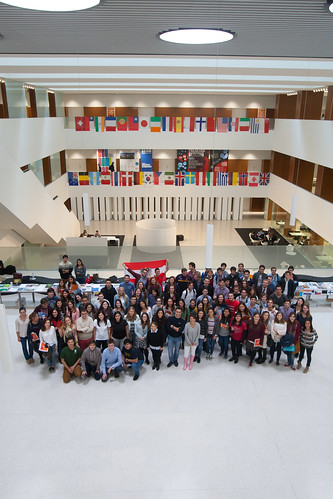Promoting Accountability for Sexual and Gender Based Violence in Nigeria – International Day for the Elimination of Violence against Women
International Day #InternationalDay


This moment provides an opportunity to reflect on the progress made in tackling the global scourge of violence against women and girls in all its forms, as well as a call to action to redouble international efforts to eradicate such crimes.
As one of the most prevalent and pervasive human rights violations, gender-based violence encompasses physical, sexual or psychological harm or suffering, and can often have a life-long impact on survivors.
In the context of terrorism, sexual and gender-based violence (SGBV) is frequently used as a tactic by terrorist groups to target women and girls – including through rape, sexual slavery and forced marriages – as a means to maintain their stranglehold on power.
In Nigeria, Boko Haram’s ongoing attacks in the Northeast have been identified in the UN Secretary-General’s 2023 Annual Report on Conflict-Related Sexual Violence as a ‘major protection concern’. It is estimated that nearly two-thirds of women in the North-East have experienced one or more forms of SGBV.
Despite widespread condemnation of this devastating global phenomenon, however, the reality is that such crimes largely go unpunished.
A recent report by the UN Security Council Counter-Terrorism Committee Executive Directorate (CTED) seeks to address this challenge by supporting Member States in their efforts to investigate and prosecute SGBV by identifying best practices and promoting survivor-centred justice.
At the heart of the UN’s approach to strengthening the prevention of and response to SGBV is the overarching principle of accountability – to ensure justice and redress for victims, as well as to prevent future violations by ending impunity for such crimes.
Putting this principle into action, UNODC, in partnership with national and international counterparts, has been providing longstanding support to Nigeria’s efforts to strengthen criminal justice responses to SGBV.
Through its technical assistance programme, UNODC has trained over 500 Nigerian criminal justice actors since 2019, prioritizing the integration of gender perspectives into investigations; legal innovation to address the absence of SGBV offences linked to terrorism under Nigerian law; and access to justice and remedies for female victims of terrorism.
In collaboration with Nigerian and international experts, UNODC has also developed a Nigeria Training Module on Gender Dimensions of Criminal Justice Responses to Terrorism to help officials investigate and prosecute SGBV.
In 2023, Nigerian prosecutors charged members of Boko Haram for the first time with inflicting serious bodily harm as an act of terrorism for alleged acts of sexual violence – a significant milestone in advancing accountability for SGBV, and one which sends a strong message to potential perpetrators that their crimes will not be tolerated.
As UN Secretary-General, António Guterres has said, “Violence against women is not inevitable”. Putting accountability front and centre is essential to challenging cultures of impunity and opening pathways to justice for survivors. However, despite the global progress made so far, much more remains to be done to end such heinous crimes once and for all.
UNODC’s Initiative “Strengthening Gender Perspective and Women’s Rights in Nigeria’s Criminal Justice Responses to Terrorism” has been made possible by the generous funding of donors, including the United States Department of State’s Bureau of International Narcotics and Law Enforcement Affairs, the European Union, and the Conflict-Related Sexual Violence Multi-Partner Trust Fund.